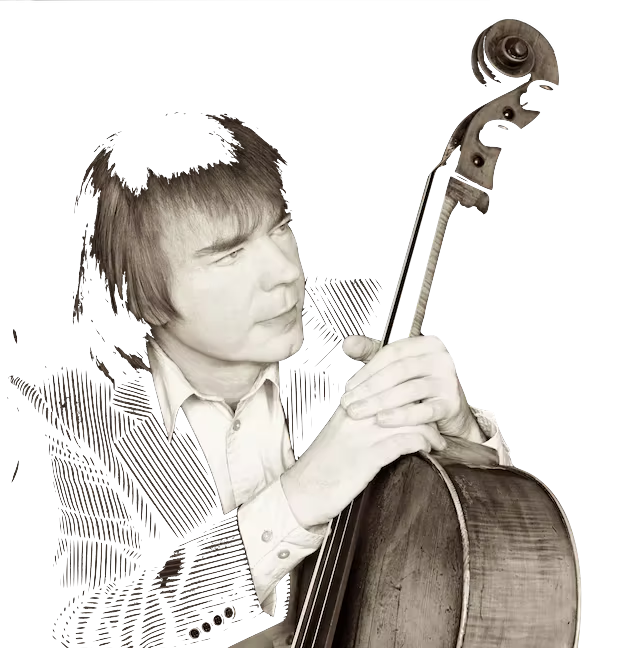Gramophone Good CD Guide 1999
Sappho’s songs and Sapphic Poem
Bantock Sappho. Sapphic Poem. Susan Bickley (mez); Julian Lloyd Webber (vc); Royal Philharmonic Orchestra / Vernon Handley. Hyperion CDA66899 (75 minutes:DDD). Text included. Recorded 1997. Gramophone Editor’s Choice.
Sappho was the fourth in a series of exotic song-cycles with piano accompaniment Bantock composed from 1898 to 1905. The orchestral version (subtitled “Prelude and Nine Fragments”) lasts around an hour and Bantock would appear to have scored individual songs as and when they were first heard in the concert-hall. Sappho derives its text from the tiny, but enormously influential output of the eponymous Greek poetess – or rather, from a free refashioning of the fragments by the composer’s wife, Helen, into a dramatically effective sequence of nine poems. Prefaced by a magnificently imposing orchestral introduction, it is a hugely ambitious, yet curiously compelling outpouring, by turns yearningly passionate, ecstatic, sensuous and darkly jealous to mirror the capricious emotions of the lovesick Sappho herself. Elsewhere, it’s difficult not to he hugely impressed by the positively Wagnerian intensity and profound emotional scope of Bantock’s writing in the fifth song, “The moon has set”. Note, too, the psychological insight in the last stanza of the second song, “1 loved thee once, Atthis, long ago”, where Bantock’s colouring of the phrase “Thou art nought to me” acutely conveys the resignatory self-deception of the poetess’s true feelings. Certainly, Sappho can be viewed as an intoxicating celebration of love in all its guises. Some may find Bantock’s inspiration too relentlessly wan and lacking in truly memorable thematic invention; others will revel in its endearing decadence. No praise can be too high for Susan Bickley’s remarkable assumption of what sounds like an exceedingly tricky vocal part (with its demandingly wide tessitura); Handley and the RPO, too, cover themselves in glory. The 15-minute Sapphic Poem for cello and orchestra acts as a wholly charming pendant to the main work. Delicately scored (with some lovely touches for the woodwind in particular) and beautifully conceived for the medium, it is a richly melodious, sweetly expressive outpouring, raptly performed here by Julian Lloyd Webber, who in turn receives exemplary support from Handley and the RPO.
Gramophone November 1997
Bantock Premiere
Sappho’s songs and Sapphic Poem
Bantock Sappho. Sapphic Poem. Susan Bickley (mez); Julian Lloyd Webber (vc); Royal Philharmonic Orchestra / Vernon Handley. Hyperion CDA66899 (75 minutes:DDD). Text included.
This really is most welcome. In a fascinating booklet-essay, Lewis Foreman relates how, between the years 1900 and 1914, Bantock produced no fewer than seven works for chorus and orchestra (including the three parts which make up his two-and-a-half-hour setting of Edward Fitzgerald’s translation of The Rubaiydt of O’mar Khayyam in its entirety), a dozen purely orchestral creations, countless songs as well as two orchestral song-cycles. All this concurrent with his considerable educational duties (no wonder Elgar spoke admiringly of Bantock as “having the most fertile musical brain of our time”).
Sappho was the fourth in a series of exotic song-cycles with piano accompaniment Bantock composed from 1898 to 1905. The orchestral version (subtitled “Prelude and Nine Fragments”) lasts around an hour and Bantock would appear to have scored individual songs as and when they were first heard in the concert-hall. (The first complete account may well have been as late as March 1921 at an Usher Hall concert under the baton of Donald Tovey, though no claims were made as such.) Sappho derives its text from the tiny, but enormously influential output of the eponymous Greek poetess – or rather, from a free refashioning of the fragments by the composer’s wife, Helen, into a dramatically effective sequence of nine poems.
Prefaced by a magnificently imposing orchestral introduction (almost a tone-poem in itself, based on thematic material from the remainder), it is a hugely ambitious, yet curiously compelling out-pouring, by turns yearningly passionate (the opening “Hymn to Aphrodite”), ecstatic (“Evening Song” and “Bridal Song”), sensuous (“Stand face to face, friend” and concluding “Muse of the golden throne”) and darkly jealous (“Peer of gods he seems”) to mirror the capricious emotions of the lovesick Sappho herself. Elsewhere, it’s difficult not to be hugely impressed by the positively Wagnerian intensity and profound emotional scope of Bantock’s writing in the fifth song, “The moon has set”. Note, too, the psychological insight in the last stanza of the second song, “I loved thee once, Atthis, long ago”, where Bantock’s colouring of the phrase “Thou art nought to me” acutely conveys the resignatory self-deception of the poetess’ true feelings (and, as Lewis Foreman perceptively states in his notes, “we know all too well she has, admitted to herself that it is an empty lie”).
Certainly, Sappho (here receiving what may bt only its third-ever complete performance) can be viewed as an intoxicating celebration of love in all its guises. Some, I fancy, will find Bantock’s inspiration too relentlessly wan and lacking in truly memorable thematic invention; others will revel in its endearing decadence. For myself, I must admit that Sappho held me pretty spellbound even on first acquaint tance – testimony, no doubt, to the valiant heroics of the present performers. Indeed, no praise can be too high for Susan Bickley’s remarkable assumption of what sounds like an exceedingly tricky vocal part (with its demandingly wide tessitura); Handley and the RPO, too, cover themselves in glory.
The 15-minute Sapphic Poem for cello and orchestra acts as a wholly charming pendant to the main work. It was first heard with piano accompaniment in December 1906; Bantock’s version with orchestra was published three years later. Delicately scored (with some lovely touches for the woodwind in particular) and beautifully conceived for the medium, it is a richly melodious, sweetly expressive outpouring, raptly performed here by Julian Lloyd Webber, who in turns receives exemplary support from Handley and the RPO. Tony Faulkner’s stunningly natural engineering (marvellous bass-drum sounds throughout) complements what is another triumphant addition to Hyperion’s ongoing Bantock series.


